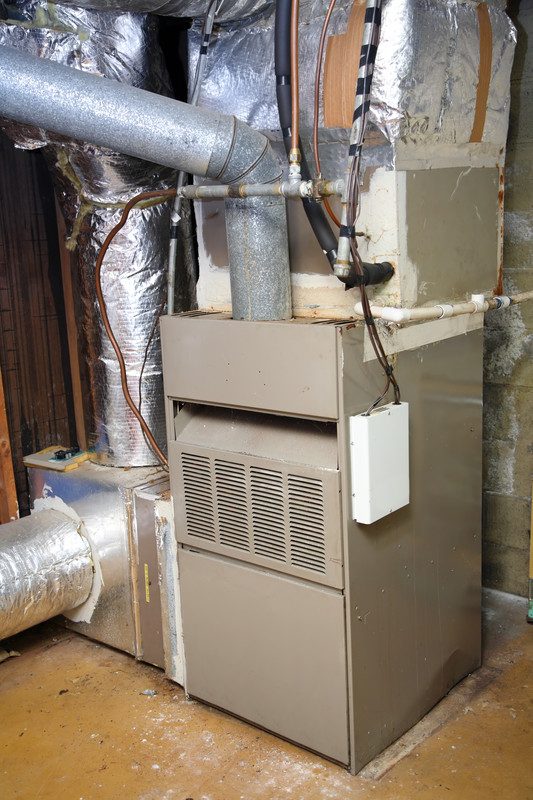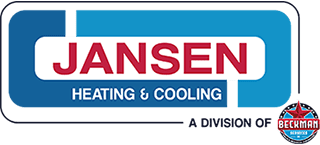When Buying a Home, Ask About Its Heating and Cooling System

If you’re looking to buy an existing house, one essential consideration should be the type of HVAC system that’s heating and cooling the house, as well as its condition. For a system serving a home in southwest Ohio, you should give equal weight to the heating and cooling systems, since you can expect both to be used extensively in our climate.
When mulling over the home-buying decision, ask some essential questions about its HVAC system:
What to Know About Your New Home’s HVAC System
The first question is obvious. How old is the HVAC system? When properly maintained (both professional and homeowner maintenance), a typical heating and/or cooling appliance should stay in service for 12-15 years, with some combustion furnaces operating adequately for 20 or more. Of course, it’s always best to move into a home that has a relatively new HVAC system. The last thing you need is to face the necessity of an expensive upgrade of heating and cooling equipment within a year or two of buying a house. Likewise, you will want to avoid a scenario where your newly occupied home is plagued by frequent breakdowns of an aging furnace or AC. Ask to see paperwork that documents the age and service record of the HVAC equipment.
What sort of heating and cooling system is operating in the house you’re considering? First of all, you’ll likely want to rule out a home that’s cooled by window or other portable air conditioning units. A central, whole-house AC or heater will provide more convenient, efficient and effective cooling and heating, with lower energy bills and less noise. A newer HVAC system probably will be more efficient, meaning it delivers more heating and cooling for the same cost as an older, less-efficient system. Learn how HVAC systems are rated for efficiency, and then ascertain the efficiency ratings for the equipment in the home you’re considering.
What’s your own preference for the cooling and heating system in the new home? Some homeowners prefer an electric air-source heat-pump system (the most common type of heat pump) that provides efficient cooling and heating from the same equipment. If that’s your preference, find out what sort of component provides auxiliary/emergency heating when the weather becomes too cold for the heat pump’s regular heating components. The best option is a dual-fuel heat pump system that employs a gas furnace to provide back-up heating in these situations. The electric heating element that provides auxiliary heating in most heat pump set-ups can get expensive. On the other hand, some homeowners prefer the standard furnace/air conditioner arrangement, appreciating the sort of cozy warmth that a furnace provides in the winter months. Another option is a ductless mini-split heat pump set-up, which provides efficient and convenient heating and/or AC to individual parts of the house.
How much does it cost to heat and cool the home? Ask the seller for documentation showing heating and cooling bills for the past two or three years.
Don’t Forget How the Equipment Has Been Maintained
Find out the maintenance record of the HVAC equipment in the home you’re looking at. You’ll want to see whether the furnace, AC or heat pump has received regular professional maintenance (annually for the heating equipment and likewise for the cooling equipment). Learning what sort of service or repairs have been made is also important, providing the seller is willing to produce that information. Sometimes an HVAC contractor will apply a sticker on an appliance, showing when it was last maintained or serviced. At the very least, this will tell you whom to call for more information on recent repairs and maintenance. A well-maintained heating and cooling system will provide more efficient and reliable service than one that hasn’t received regular maintenance.
Is this house weatherized? If you’re having the home inspected before purchase (always good practice, and a requirement of many home transactions), that inspection should include a look at the tightness of the home’s outer envelope, including windows and doors (does the house have lots of air leaks or is it properly sealed?), and whether it has sufficient insulation in the right places. No matter how excellent a home’s HVAC system, if it’s leaking like a sieve, your costs will be high and comfort will be low. All’s not lost if the house does have substantial issues with air sealing and poor insulation. These are issues that can be addressed if you and/or the seller are willing to pay the cost.
